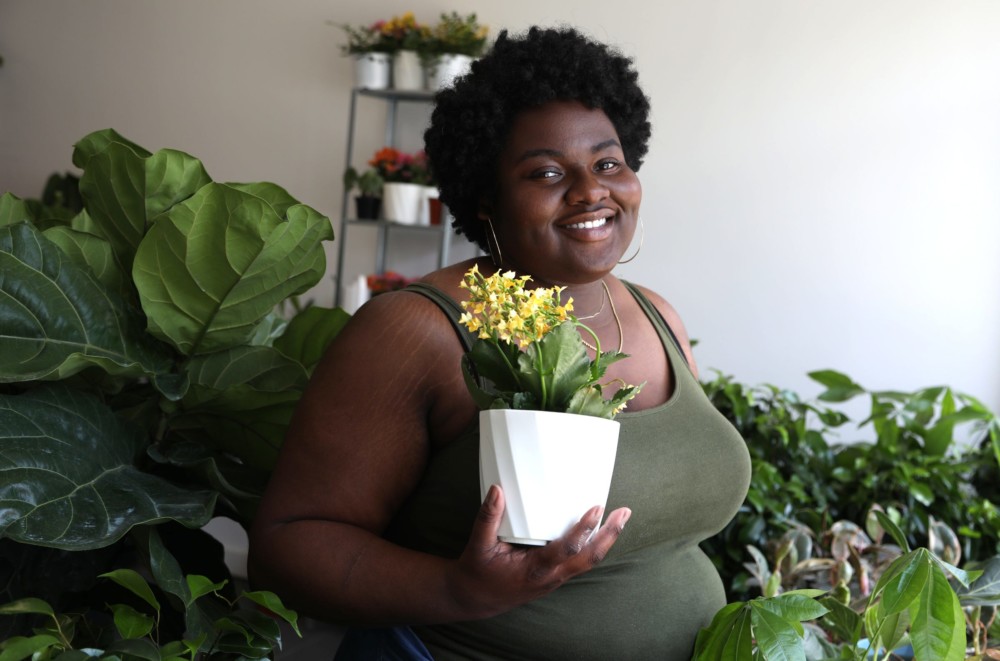By Chris Tomlinson
Houston Chronicle
WWR Article Summary (tl;dr) Rahel Abraham is the founder of “Climaguard.” Her signature product is an envelope made from a material with welded seams that wraps around cars and keep floodwaters out for hours. Her idea was inspired by her personal experience during Hurricane Harvey.
Houston
The parking lot at Rahel Abraham’s condominium had never flooded before, and by the time Brays Bayou threatened her car, the water was too high for her to drive away.
From a second-story window, all she could do was watch as Hurricane Harvey’s prodigious rainfall totaled her 2008 Infiniti G35. But the Houston engineer was too busy helping first-floor neighbors move upstairs to worry about it for too long; lives are more important than possessions.
The aftermath is what inspired her to entrepreneurship. The monthlong wait for a rental car. The fundraiser for a friend who lost his job because he had no way to get to work. The ruination of her downstairs neighbor’s large-format paintings, the artist and cancer patient’s sole source of income.
Then there were the long hours spent filing insurance claims, weeks waiting for checks. Abraham wondered: Why wasn’t there an easy way to protect cars and belongings from floodwaters so none of this would be necessary?
“We were all rebuilding, and in my mind, I was like, I have the time, I have the understanding of materials and I wanted to do something,” she said.
Abraham had earned a chemical engineering degree at the University of Texas at Austin and a master’s degree in environmental engineering from the University of Houston. She has worked at chemical companies and overseen projects for pipeline operator Enterprise Products.
Before Hurricane Harvey struck in 2017, Abraham was already considering a change of careers, perhaps moving into renewable energy. But the storm revealed a challenge she could not let go of.
Her solution was simple, but the execution was hard. Abraham wanted an envelope made from a material with welded seams that could wrap around cars and keep water out for hours, if not days. She also needed to attach strong harnesses, so the cars would not float away.
Most of all, though, she needed an easy-to-use design that people could deploy quickly and easily. She knew her product was only for emergencies, like a spare tire, so she needed to make it affordable.
Abraham applied her problem-solving skills to design a patented protective enclosure that keeps the muck and water out. Her 30-pound zippered envelope fits in a duffle bag and takes one person 10 minutes to set up.
Using her own money, she then launched her company, Climaguard.
That is when she learned how hard starting a business can be.
Abraham needed a heavy-duty, waterproof and lightweight plastic. But she found North American manufacturers charged far more than her potential customers would pay.
A friend, who sources textiles, recommended she go to China. Inspired by Sara Blakely, who founded underwear-maker Spanx, Abraham flew to Shanghai in October 2018 and met with manufacturers and toured facilities as the CEO of a company of one. She hired a Swiss firm to test her prototypes.
Her first 30 units arrived in December, and she sold out immediately. But then COVID struck China in January, shutting down manufacturing. Her next shipment did not arrive until June, but now she is pitching the insurance industry, car dealerships and retail stores and selling online.
I heard her address the Insurance Information Institute, explaining how companies could save money on claims by offering customers discounts on Climaguard enclosures in flood-prone areas.
“Ideally, I would partner with insurance because I feel like we would be able to bring down the cost and incentivize customers and have a bigger pipeline,” Abraham told me later.
New car buyers would especially benefit because their vehicles depreciate quickly, and insurance companies only reimburse for the lower value, she added. Dealers should offer Climaguard as a value-preserving add-on, she suggests.
Homeowners can use the same envelopes to protect their belongings when water comes over the threshold.
“The compact car size could literally fit a living room,” she explained. “You could put two couches in there, a table, you could stack it up because the compact car size is about 14 feet.”
While she works on selling her existing products that fit a range of vehicle sizes, she is working on new designs for motorcycles and recreational vehicles. She also wants to expand her range to protect cars from other natural disasters, such as hail.
“I feel like that is just one more way for someone to be able to recover faster, to go to the grocery store and get your medication, to go to the Home Depot to pick up disinfectant,” she said. “Your car is not just a luxury; it’s a way of being able to live a quality life.”
Like all good entrepreneurs, Abraham is trying to solve society’s real problems in a way that allows her a bit of profit for her hard work. If she can save people’s cherished belongings, keep cars out of the junkyard and give people a chance to bounce back quicker, a small return is well-deserved.
Imagine the millions of dollars we could save if people in flood zones could zip their most-valuable objects into a protective envelope and feel confident they would be saved. We need more entrepreneurs like Abraham who dare to not only see a problem but to address it with an ingenious solution.
Tomlinson writes commentary about business, economics and policy.
buy intagra generic buy intagra online no prescription
___
Distributed by Tribune Content Agency, LLC.















































































































































































































































































































































































